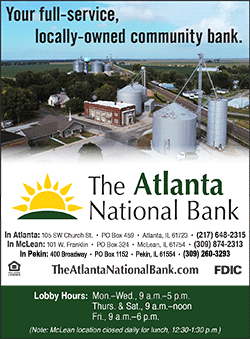|
 Something
people may not immediately consider when thinking about a farm is
the massive financial responsibility that running and operating a
farm is. A farm is a business and farmers need to not only have a
sense for agriculture, but a sense for finances as well. If you have
ever considered the financial cost of running a farm, or if you are
just interested in the topic, continue reading to learn more. Something
people may not immediately consider when thinking about a farm is
the massive financial responsibility that running and operating a
farm is. A farm is a business and farmers need to not only have a
sense for agriculture, but a sense for finances as well. If you have
ever considered the financial cost of running a farm, or if you are
just interested in the topic, continue reading to learn more.
How much money do you need to start a farm? This is a question that
is much easier to ask than to answer, as it depends greatly on the
size of farm you want to operate. According to Shawn Williamson, a
farmer out of Columbia, Illinois, “add it all up, and we arrive at
$5,157,000.” This is a number he came to after considering
everything someone would need to run a farm on 500 acres of land,
including the land. This included an agricultural degree, all of the
farm equipment for a large-scale farm, and the buildings and
structures a farmer would need. To read more about how Williamson
came to his figure, read his article on Successful Farming here.
https://www.agriculture.com/how-much-does-it-take-to-become-a-farmer-7521627
For a small-scale farm, on the other hand, the number can be much
more reasonable. The website QT business solutions claims that
starting a small farm can cost somewhere between “$600 to $10,000.”
However, according to them, this number can vary for many reasons as
well. “Outlook, location, type of equipment, size of farm, type of
labor required, invested time, farm products, and if you already own
a property, or you are borrowing from relatives, or would rent,
greatly determines the cost of starting a farm.”
It is reasonable to think that someone may be able to get a hold of
$600 to start a small farm, but $10,000 or even five million or more
is not. How would someone go about getting that kind of money in the
first place? The first and easiest way to go about getting that
money would be through a loan. There are many lending institutions,
such as banks or credit unions, that cater to farmers specifically.
Websites such as Rural 1st
https://www.rural1st.com/locations/illinois can help you
find such a lending institution.

When using the website to
search Logan County’s area code, three locations for Farm Lending
Illinois come up, one in Taylorville, one in Decatur, and the
closest one being in Sherman.
You can also secure a loan from the United States Department of
Agriculture (USDA). The USDA website states that farmers can get a
loan of up to $600,000, while farmers just starting out can get a
loan of up to $300,150. These loans, like bank loans, do not have
set interest rates, and the current interest rates are posted on the
first of each month. The Illinois Department of Agriculture (IDA)
also provides loans and grants to people who are or are looking to
become farmers. To see more about the IDA’s options for grants and
loans, see their website.
https://www.fsa.usda.gov/programs-and-services/farm-loan-programs/farm-ownership-loans

How does a farmer keep his or
her farm from going into bankruptcy? This is a very important
question, especially if the farm is worth millions of dollars. BTC
(Bethany Trust Company) Bank is an agricultural bank out of
Missouri, their website has seven tips for farmers to become better
at financial management for their farms. One of the most important
things they suggest is to “be meticulous with your bookkeeping.” BTC
states that when a farmer keeps track of their finances throughout
the year, it will better prepare them to correct their farm’s
finances when an issue arrives. “Meticulous bookkeeping,” says BTC’s
article, “will help you catch increasing expenses or diminishing
profits faster so that you can take corrective action.”
[to top of second column]

 |

Another suggestion BTC’s
article makes is to have a farmer keep their personal and business
finances separate. The way they suggest doing this is by opening a
business checking account. They state that you will not “muddle your
home and ranch finances.” An additional benefit to this is being
able to give others access to your business account, such as
employees. “Having a business checking account,” says the BTC
article, “allows business partners or trusted employees to access
the account in order to pay bills or collect payments.”

The BTC article also states
that debt management is very important, giving many ways in which a
farmer can do this. They state that a farmer should take a look at
their debts and be sure that you have the best financing options.
They also state that assets that are going to be long-term, such as
farmland, “are best afforded by taking out long-term debt that is
repaid over the course of years.” Short-term debt, on the other
hand, is best paid in cash. These may include things such as farm
machinery or livestock. They also include links to give their
readers access to more resources regarding livestock tending, farm
operating loans, and farm equipment financing.
While there are four more pieces of advice that this BTC article
includes, there is not enough room to review them here. To see the
other pieces of advice, see their article here.
https://btcbank.bank/about/7-tips-for-better-farm-financial-management#:~:text=Keeping%20business%20finances%20separate%20from,your%20home%20and%20ranch%20finances.
Financing a farm can be a very difficult venture, or it can be
fairly easy. It all depends on the size of the farm you are looking
to operate. The larger the farm, the more difficult the start up. So
long as one is wise about it, they can not only get into the
agricultural industry, but thrive once there.

Sources:
https://www.agriculture.com/how-much-does-it-take-to-become-a-farmer-7521627
https://qtbizsolutions.com/2021/04/12/how-much-does-it-cost-to-start-a-farm/.
https://www.rural1st.com/locations/illinois
https://www.fsa.usda.gov/programs-and-services/farm-loan-programs/farm-ownership-loans/index
https://www.fsa.usda.gov/programs-and-services/farm-loan-programs/farm-ownership-loans/index
https://btcbank.bank/about/7-tips-for-better-farm-financial-management#:~:text=Keeping%20business%20finances%20separate%20from,your%20home%20and%20ranch%20finances.
|